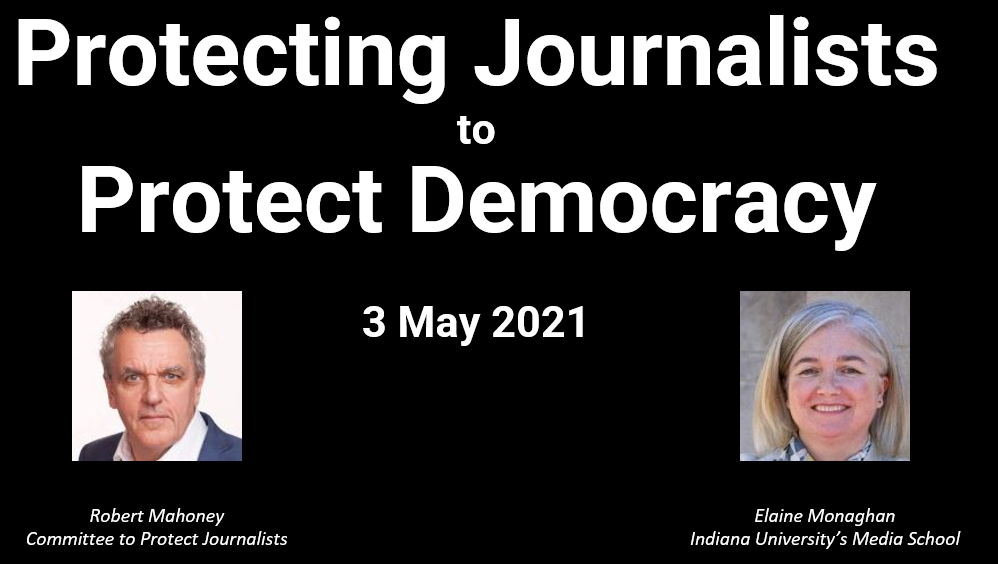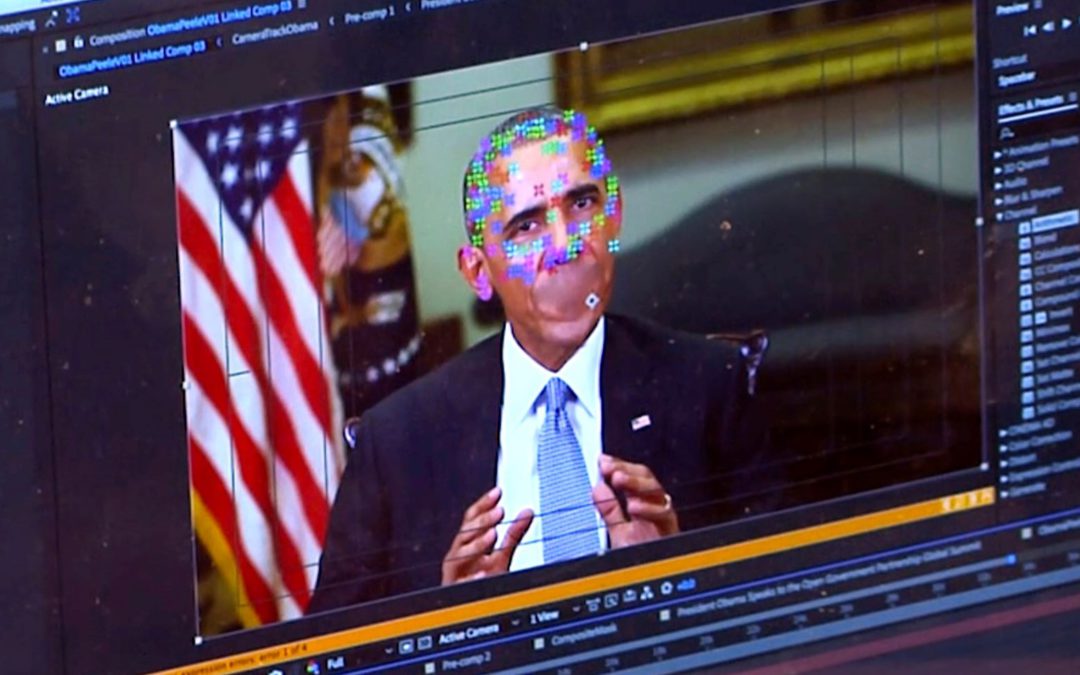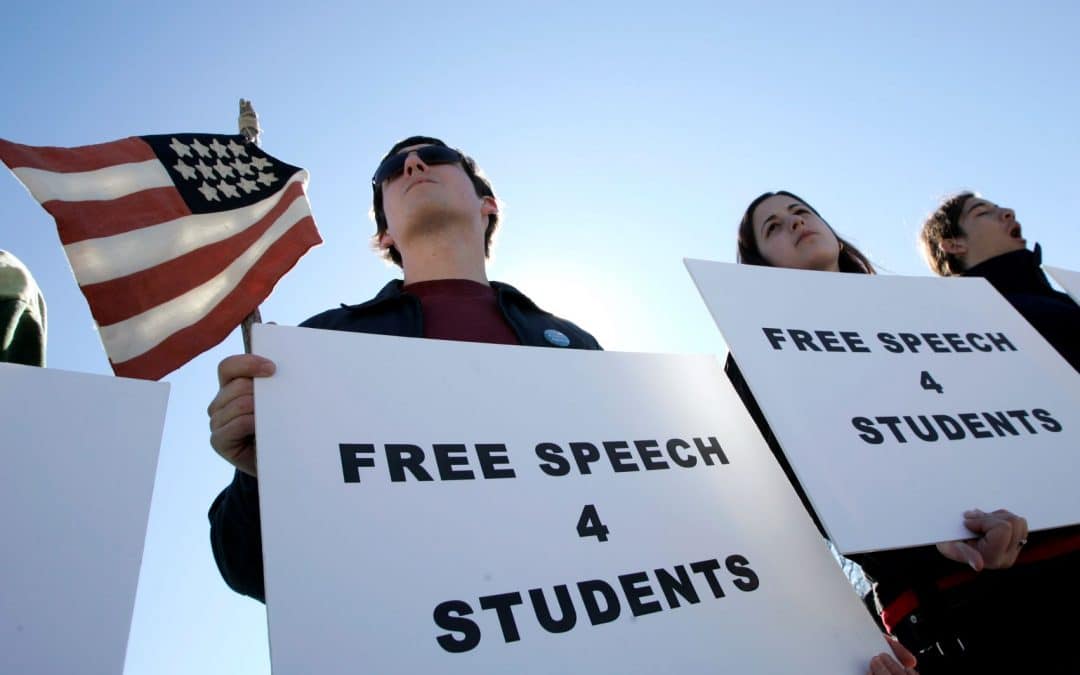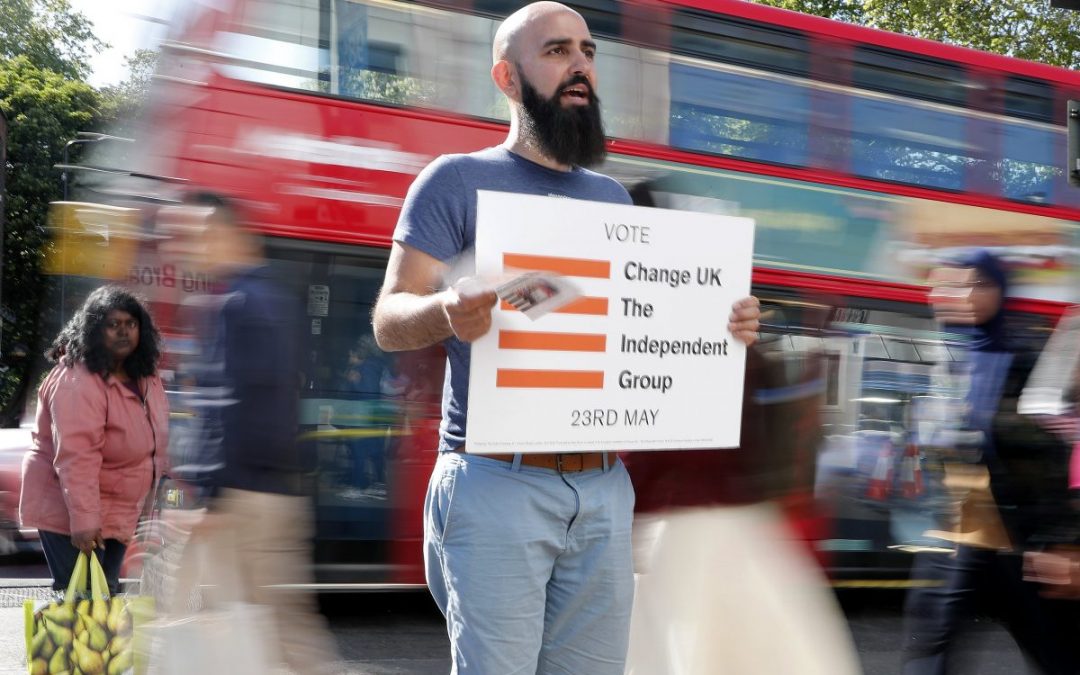
by Aralynn Abare McMane | 5 May 2021 | Future of Democracy, Human Rights, Indiana University, News Decoder Updates, World
Journalists are under threat around the world. What to do? Take out a subscription to defend press freedom and democracy, one expert suggests. Robert Mahoney of the Committee to Protect Journalists has an easy idea for how anybody can support freedom of the press and...

by Stuart Grudgings | 18 Jan 2021 | Donald Trump, Educators' Catalog, Fake News, Future of Democracy, Media Literacy, Technology
Fake news is already eroding our shared sense of reality. Now, deepfakes and AI stand to fuel disinformation and imperil democracy. An image of a deepfake video of former U.S. President Barack Obama (AP Photo) The unprecedented mob assault on the U.S. Capitol on...
Technology permeates students’ lives and has contributed many economic benefits to the world while bringing far-flung communities closer together. But what of the downsides? The polarization of society? The dangers of spending too much time on social media? Citizens being hoodwinked into believing the unreal? One of the biggest questions facing policymakers around the world today is how to protect democracy without infringing on free speech. It’s a question that is not going to go away and which students would do well to start considering today. In this article, Stuart Grudgings introduces us to some of the disturbing possibilities of deep fake technology and begs the question of what to do about it.

by Joy Chinaza | 9 Dec 2020 | Africa, African Leadership Academy, Contest winners, Educators' Catalog, Eyewitness, Future of Democracy, Human Rights, Personal Reflections, Politics, Student Posts, Youth Voices
I joined protests against police brutality in my home country of Nigeria and saw them almost become a war, then a rude awakening for youth. Protesters in Umuahia, Nigeria, October 2020 (All photos courtesy of Eje Studios) This story was a runner-up in News...
Joy Chinaza takes us into the streets of Nigeria to join young people protesting against police brutality. Like youth elsewhere this year, she is driven by anger over rights abuses perpetrated by police charged with protecting civilians but who instead turn weapons against minorities. A shared sense of injustice motivates Chinaza and millions of others around the globe, making her story a metaphor for youthful outrage. But the personal details in the tale by the African Leadership Academy student, including the beating her own brother suffers, add poignancy that sets her account apart. Make sure students note how the first-person pronoun draws them into the story. And how her outrage — so common among youth — is tinged with ambiguity at the end.

by Lucy Jaffee | 27 Oct 2020 | Contest winners, Educators' Catalog, Human Rights, La Jolla Country Day School, Student Posts, Youth Voices
A U.S. school district wants the Supreme Court to overturn a landmark free speech case and let it punish a student for criticizing her school online. Students protest for the right to free speech outside the Supreme Court in Washington, DC, 19 March 2007. (AP...
Lucy Jaffee of La Jolla Country Day School tackled a complicated topic — a court case involving a student’s freedom of speech and social media — by interviewing two experts, including the foremost authority on the U.S. First Amendment, Floyd Abrams. The lesson: If you put effort into understanding an issue, experts will be glad to speak to you. Students should contact experts because they will offer unique insights and help answer the question, “What next?”
The case Jaffee’s article focuses on lends itself to classroom discussion because it engages a matter of great interest to students. While students may instinctively side with the young woman whose Snapchat post triggered the controversy, there may be other off-campus outbursts on social media — Holocaust denial, racist language — that they might like to see sanctioned. Like so much in life, First Amendment issues often lie in the gray zone.

by Malcolm Davidson | 11 Jul 2019 | Donald Trump, Europe, Future of Democracy, Technology
Populist parties are the political groupings of the 21st century. Insurgents who get social media right can make big gains. But not all succeed. A supporter of Change UK party holds a poster advertising for voting in the European election in London, 14 May 2019 (AP...





